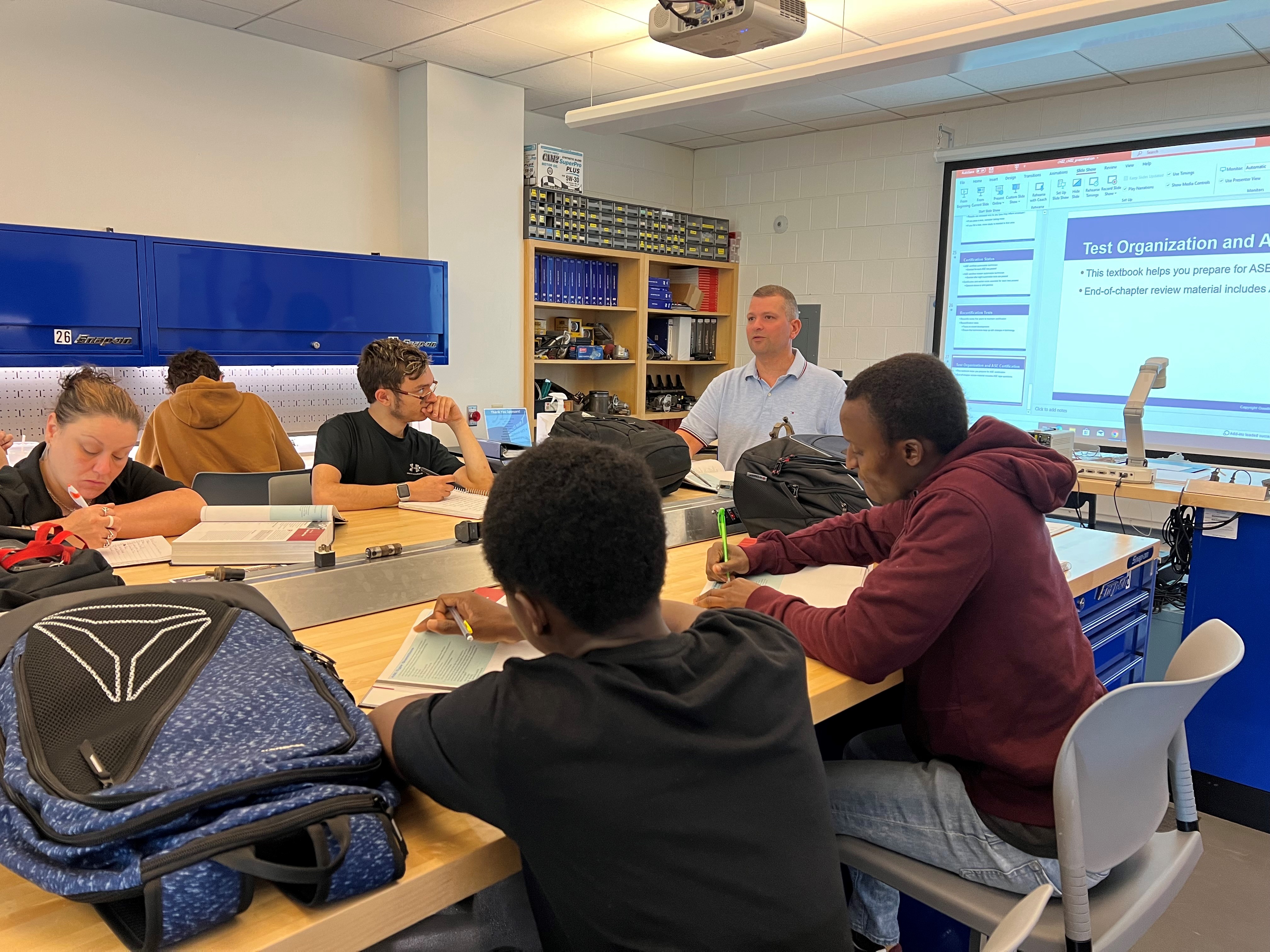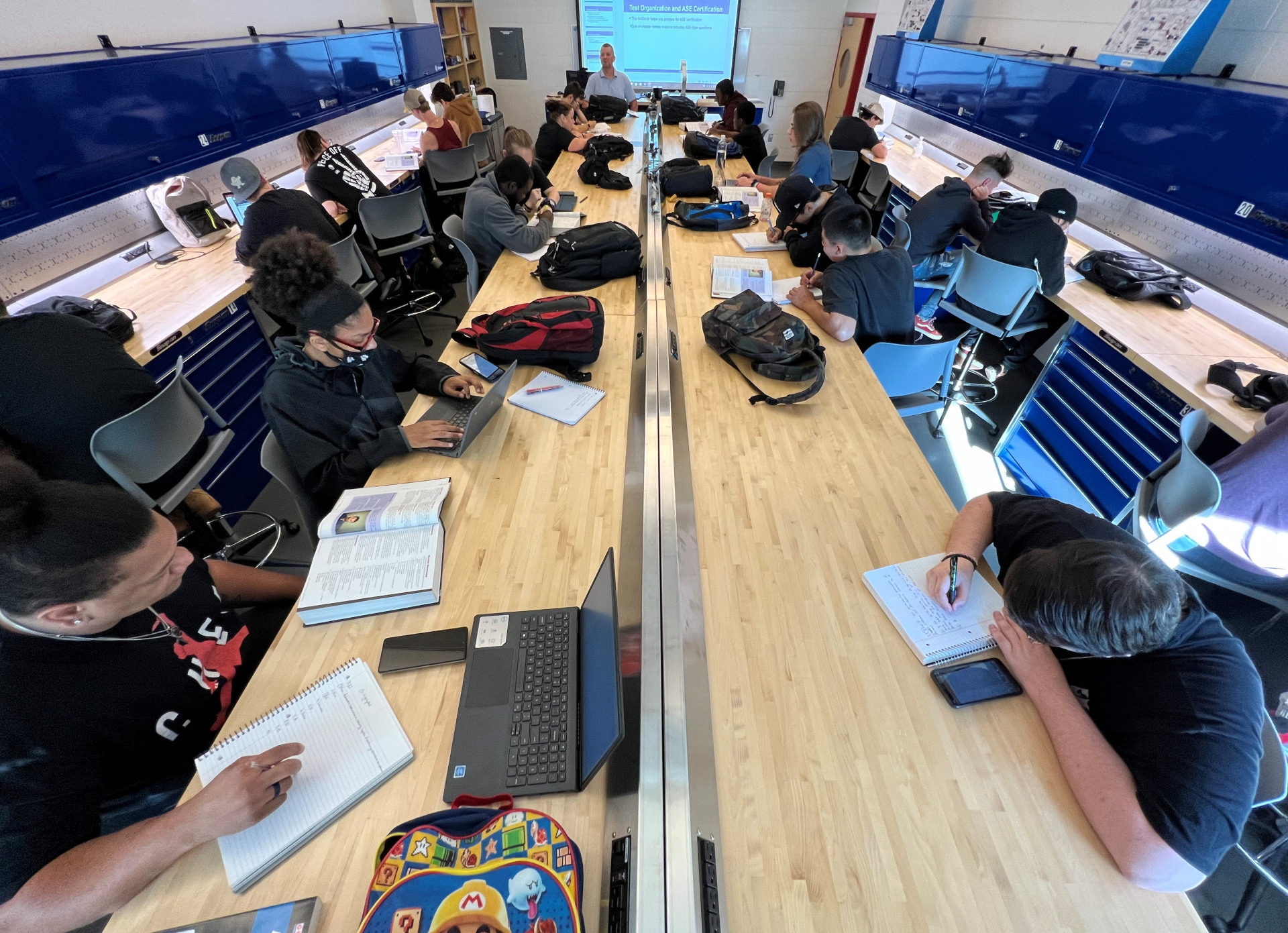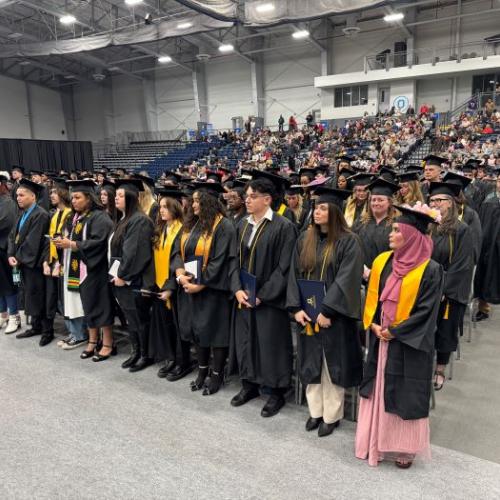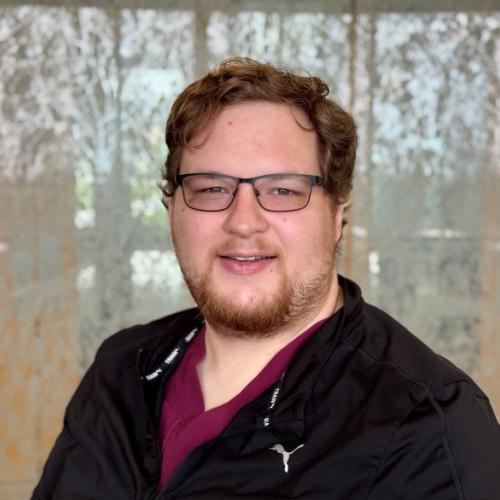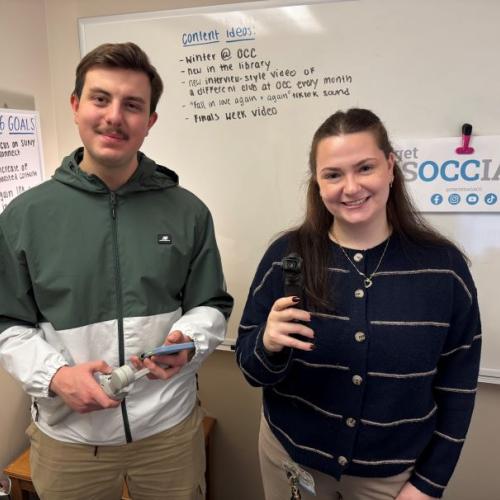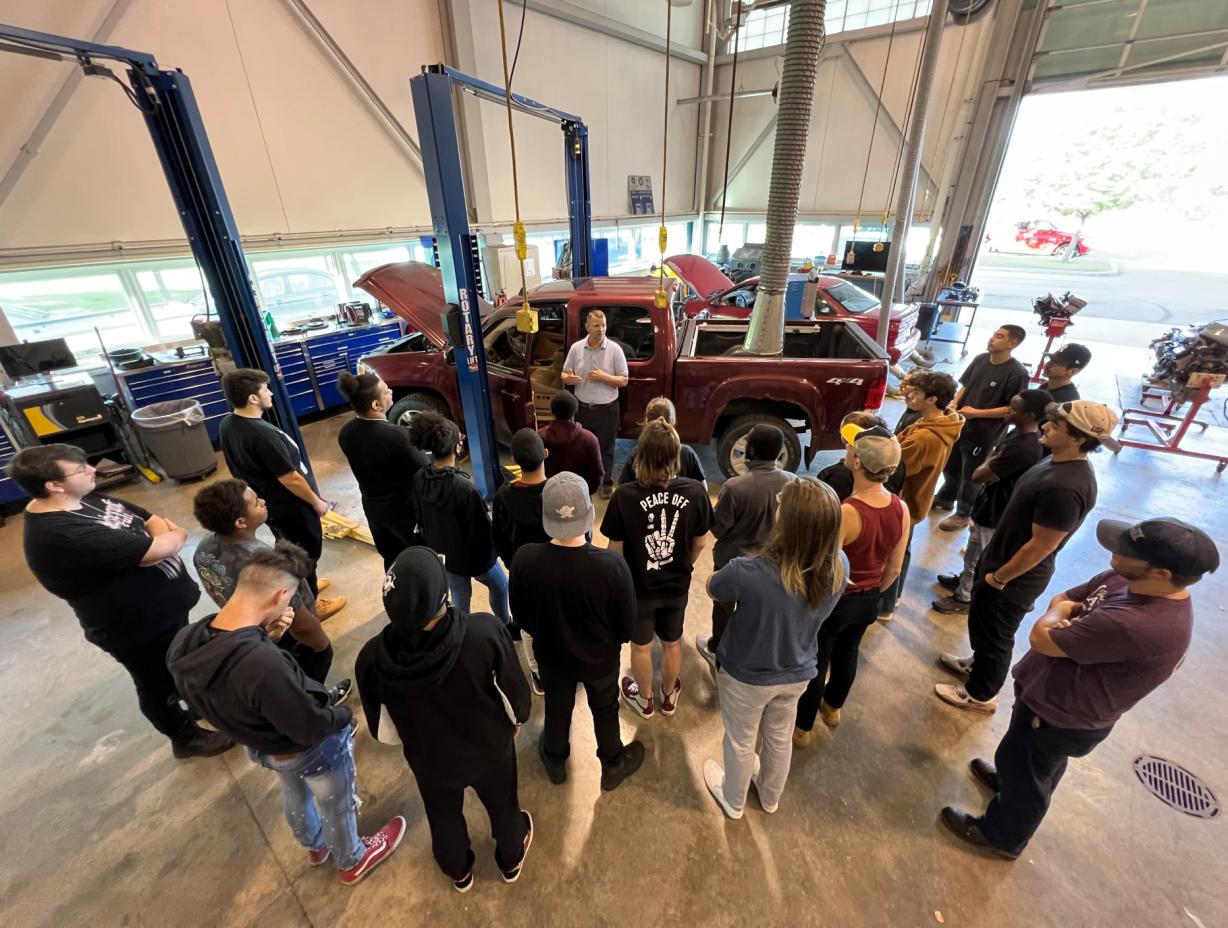
Three years ago when alumnus Ryan Beckley '98 returned to Onondaga Community College as Chair of Automotive Technology, the program’s enrollment was, in car terms, a clunker. There were about a dozen students in the entire program, and by the end of the academic year only three would earn their associate degrees.
As the 2022-2023 academic year begins, enrollment in Automotive Technology has taken a dramatic U-turn. There are between 35 and 40 students enrolled, and the projected numbers for next year are looking even better. “We worked really hard. Everything was time consuming but I think we hit the jackpot,” said Beckley.
So what was “Ryan’s Recipe” for success? He brought his passion into area high schools, asked future and current students a lot of questions, and acted upon what he learned from them. He had the support of area car dealers and independent repair shops who needed technicians. And he received the full backing of OCC's administration which invested heavily in Automotive Technology facilities. "The college saw the critical need in the industry for technicians and supported us 100%. They realized how critical the need is."
Before returning to OCC in his current role, the Baldwinsville High School graduate had spent 20 years running the automotive program at East Syracuse Minoa High School. He was known for thinking outside the box and was named Central New York's Technical Teacher of the Year in 2008-2009.
At OCC, Beckley used his scholastic connections to get into BOCES facilities and high schools with automotive programs and make his pitch to students. "I created a PowerPoint with some videos and talked about the program. I also had local industry representatives come in with me and their presence added a lot of validity to what we were doing.”
Next, he convinced high school students to come to OCC for a visit. Over the course of five days, students from five different schools came to campus. During their field trip, the Student Recruitment office gave them tours and industry representatives paid for the students’ lunches in the cafeteria. “We had 10 to 12 dealerships and independent repair shops come in and talk to students about pay and what they look for in new technicians. Their participation made it way more powerful than anything I could ever do. To have places like Driver's Village, Chris's Auto Repair, and Romano here to talk about going to OCC and then to work for them, to have the weight of industry behind all of this, made it real.”
The on-campus visits also included a hands-on learning exercise in the Auto Tech lab. Students were given a “customer complaint” and a vehicle to work on. They used the state-of-the-art equipment to figure out what was wrong. “By the time they diagnosed and fixed the problem, it was time to go. And by then students were saying 'do we have to go? Can we stay and do something else?'"
Getting students into the Automotive Technology program is only half of “Ryan’s Recipe.” The other half is what happens to them once they enroll here. "On the first day I tell students 'you do not need to be here to be successful in the automotive industry. You can go out into the workforce and gain skill and ability over time. But if you follow my formula which is work and school at the same time, you will excel at a much faster rate. You will become an A-level technician faster.' And from that moment, they buy into what we are teaching."
Beckley wants students to build careers while attending classes, so the goal for each of them is to be working in the industry by the end of their first semester. The real-world experience will give auto repair shops the workers they need, and help students easily fulfill a requirement that they have 400 hours of experience by the time they graduate.
In his unending quest to grow the program, this fall Beckley gave his new students a questionnaire which included the question: "How did you get here?" About half of the answers centered around things like the OCC website, online research, or encouragement from a friend or parent. The rest of the answers were school-related such as the recommendation of a high school teacher or guidance counselor, or one of Beckley's high school or BOCES visits.
The Automotive Technology enrollment U-turn is just the beginning. Beckley wants to create a diesel heavy equipment program and an auto body collision program. "When everything is in place, students will come here and have the same first year experience so they all get the same base. In their second year they will go into what they want."
His return to campus and his vision couldn't have come at a better time. Through his industry contacts he knows how critical the need is for the next generation of technicians. "Dealerships and independent repair shops are losing millions of dollars a year for work they are unable to do. In the next 5 to 10 years, their techs with the most experience are going to retire, meaning all of that skill and experience will be gone. We're in a great position to help students and employers now and in the future. We're raising the standards, producing quality employees, and raising the profile of OCC within the industry."
